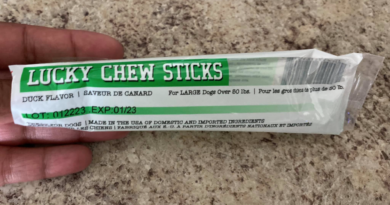Some Breast Cancer Patients May Safely Forgo Chemotherapy
June 15, 2023 – Sometimes less may be more, and researchers are increasingly looking at ways that cancer therapy can be safely “de-escalated,” making a patient’s care less aggressive without affecting their odds of survival. One new study shows women with HER2-positive early breast cancer were able to be successfully treated without chemotherapy thus avoiding its harsh side effects.
HER2 positive breast cancer is not that common, and diagnosed in about 1 in 5 women with breast cancer. It means that the cancer cells have additional copies of the gene producing the HER2 protein, and this cancer type tends to be more aggressive than others.
But treatment has been developed that is specifically targeted to HER2 positive breast cancer. Trastuzumab and pertuzumab target the HER2 protein, and these two drugs are generally used together with traditional chemotherapy before and after surgery.
The current study, however, presented recently at the annual meeting of the American Society of Clinical Oncology in Chicago, showed that some women can forgo chemotherapy.
Better ‘Quality of Life’
“The introduction of anti-HER2-based therapy has dramatically changed the prognosis of not only HER2-positive metastatic breast cancer, but also HER2-positive early breast cancer,” said study author Javier Cortés, MD, PhD, of the Ramón y Cajal University Hospital, in Madrid, Spain. “And this has led to the opportunity to investigate different de-escalation strategies.”
In this study, Cortes and his team divided 356 patients over the age of 18, who had operable, early stage HER2+ breast cancer, into two groups, A and B.
Women in Group A received a combination of chemotherapy and trastuzumab and pertuzumab. In contrast, the treatment in Group B was designed to forgo chemotherapy based on individual progress.
After those in group B received two cycles of pertuzumab and trastuzumab, they underwent a scan with Positron Emission Tomography (PET). If the scan showed that they had responded to the treatment, they underwent additional rounds of treatment but without chemotherapy.
Both groups went on to surgery, following their initial therapy. After surgery, patients who did not show any signs of cancer continued their treatment without chemotherapy. The rest of the patients received chemotherapy.
All of the patients in the study responded very well to treatment. About 95% of patients remained cancer free after 3 years, and this number was even higher in the group that did not receive chemotherapy. Cortes noted that for these 30% of patients, which was basically 1 out of 3 patients who did not receive chemotherapy, the three-year survival without a cancer relapse was excellent, at nearly 99%.
“In my opinion, this study might identify 30% of patients who will maybe be cured without the need of chemotherapy and only be treated with a combination of trastuzumab, pertuzumab, and endocrine therapy, if appropriate,” Cortes said.
He also pointed out that the rate of serious side effects was much lower in patients that were able to avoid chemotherapy.
“What we saw in this trial was that there was clearly a benefit as far as adverse events,” said Justin M. Balko, PharmD, PhD, of Vanderbilt University Medical Center in Nashville, Tennessee, who commented on the study during the meeting. “As somebody that studies immune-related adverse events in my own lab, I thought that, while this wasn’t unexpected, it was really powerful to see the data of how much more likely the quality of life is for these patients that were saved or spared from chemotherapy.”



